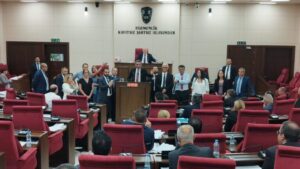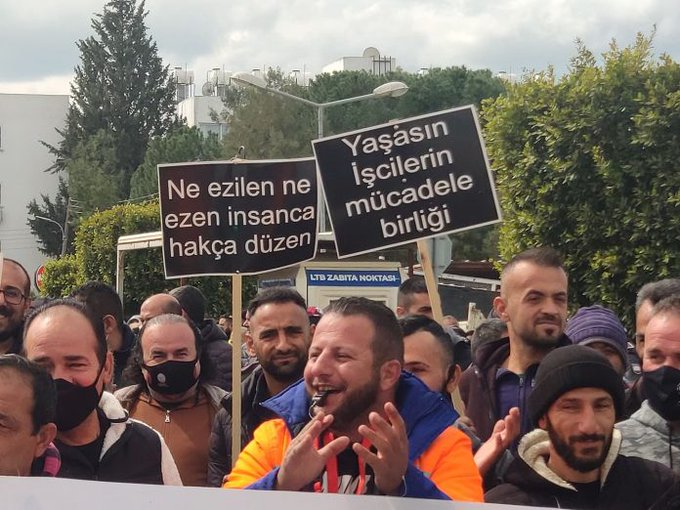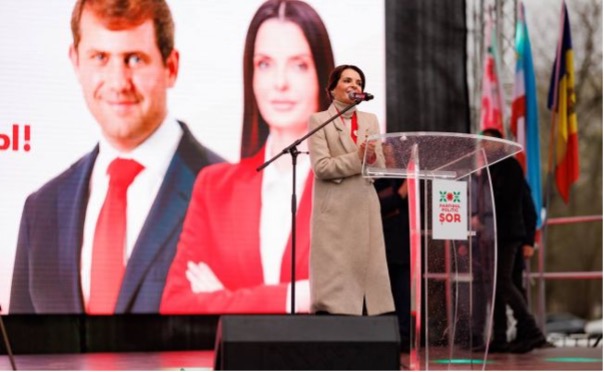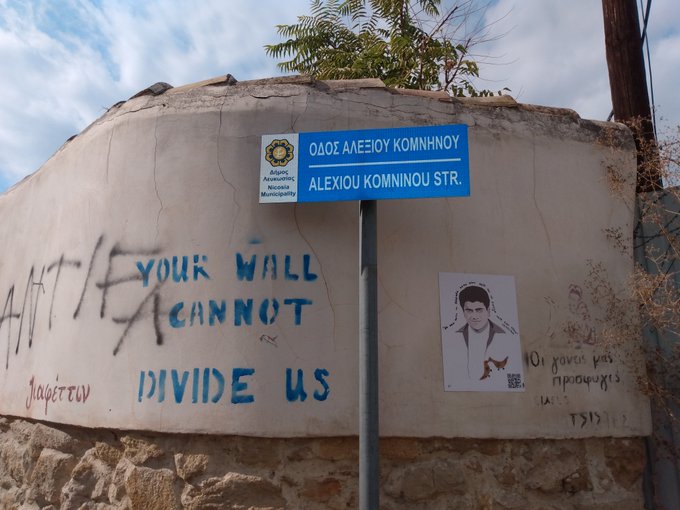The Grape that Darkens the Other: Local Elections and Municipal Reforms in Northern Cyprus
On December 25, 2022, the Turkish Cypriots proceeded to the ballot boxes to vote for their local elections. In these delayed elections, the citizens of Northern Cyprus voted for their mayors, municipal councils, mukhtars (official/elected neighborhood representatives) and community councils. According to the Freedom House data, Northern Cyprus scores 27/40 for political rights and 50/60 for civil liberties, and is considered a free territory. Both the people and the state have a good grasp on what it means for their country to have freedom of speech, free media, and independent institutions. The ideas of democracy, human rights and reforms are precious values inherited by Turkish Cypriots. Therefore, this de facto entity boasts a higher freedom score than some recognized states part of the international theatre. In Northern Cyprus fair and free elections are important events to be preserved and local elections are a routine procedure held, usually with no hiccups. These elections had been realized systematically in the month of June every four years since the constitution entered in force on May 5, 1985.
However, the latest municipal elections were engulfed in political and social chaos due to the “Municipalities Reform.” The resolution to achieve desperately needed reforms was pushed by the government a mere four months before the upcoming elections with no solid plan to speak of. Unions of municipal workers and the opposition party criticized the current form of the reforms vehemently. This ambiguity and atmosphere of heated discussion led to the delay of the implementation of the reforms and consequently, the delay of the local elections not once, but twice. Furthermore, the fact that the reforms are desperately needed is a sentiment shared by all political parties.
The municipal reforms are not a topic the political and social spheres of Northern Cyprus are unfamiliar with. Talks around realizing the reforms date as far back as 2008. The main issue with the municipalities in Northern Cyprus is the proportionate budget allocation. This means that while those municipalities with larger populations enjoy more financial support, the smaller ones are battling mounting debts. The latest round of discussions by the government in the past year started right after the snap elections were held on January 23, 2022. The reform legislation envisioned a decrease of the number of municipalities from 28 to 18 by closing some municipalities and merging them with other larger ones. According to a news article by the newspaper Kıbrıs, the first draft bill was prepared by March 18, 2022 and passed the council of ministers to be sent to the parliament. Although the draft bill included a plethora of important topics such as the borders, assets and authorities of municipalities and retirement rights of mayors, the draft bill was not shared with the parliament committee which would discuss these reforms. Furthermore, the draft bill was also not published in the official gazette, and municipalities, opposition parties and the worker unions were also unaware of such a legislation. It is important to note here that a well-thought-out reform plan would not have been opposed by these parties if not for the decision of the government to single-handedly perform these reforms with a top-down approach.
The fait accompli procedure to implement the municipal reforms were met with heavy resistance from different unions across the de facto state. On Monday, March 21, the municipal workers begun their first strike, meant to provide a warning to the coalition government. The municipal unions marched to the parliament and blocked the traffic in front of it. The Unions Platform, which is made up of several important unions in the Turkish Cypriot society expressed their support to the demonstrations and the outcry of the municipal workers’ unions. The president of Municipal Laborers’ Union clarified that if the draft bill were not to be pulled back by March 25, they would go on an indefinite strike. In a press release, one of the most prominent and active unions in Northern Cyprus, KTOEÖS (Cyprus Turkish Secondary Education Teachers’ Union) called the draft bill not a reform, but a rip-off. This claim is not entirely unfounded, as the draft bill on the desks of the parliament members did not go beyond suggesting numerical rearrangements to the municipalities based on maps and not scientific data. Furthermore, according to some mayors, it was unclear as to how the quality of the services and salaries of displaced employees would be ensured.

Image: Municipal workers clashing with police forces (Source: giynikgazetesi.com)
The opposition party, CTP did not remain silent about the municipal reforms as well. They opposed the draft bill on two grounds: 1) that it was not the result of a cooperation between multiple spheres which have a stake in the municipalities, 2) that it was contrary to the constitution to delay the local elections. The strong reaction from the opposition and the unions led to a meeting with the President of Northern Cyprus, Ersin Tatar. In this meeting, the leaders of all political parties were present, and it was agreed upon that an ad-hoc committee should be formed to discuss the issues surrounding the reform suggestions. The committee came to life on April 19, its participants selected to represent all five political parties which have seats in the parliament. Its first meeting was fruitful, and some criteria on which the reforms should be based were agreed upon. However, after just one meeting, the ad-hoc committee was abandoned by the government and the criteria were scrapped. The reform bill was presented directly to the parliament committee for discussion, in which the coalition government held the majority of seats. On August 12, the said committee convened with the full participation of the council of ministers among protests by unions outside of the parliament. After 17 hours of debate the reform bill was approved and sent to the parliament. It is mentioned that the president of the committee did not even have the opportunity to read the final text, and the reform bill was rushed to the parliament for ratification.

Image: President Ersin Tatar and party leaders meet to discuss the municipal reforms (Source: kktcb.org)
Two weeks later, on August 24, the parliament of Northern Cyprus gathered to vote for the ratification of the reform legislation. The protests resumed in front of the parliament, and even involved clashing with the security forces. Unionists and laborers from all around Northern Cyprus who were trying to reach the capital Nicosia were detained by the police forces. Meanwhile, inside the parliament, the opposition party occupied the parliament floor to continue the protests against the legislation, still considered a fait accompli. The occupation lingered until the early hours of August 25, while the coalition government’s MPs returned to the parliament and ratified the legislation. The decision was taken to the Constitutional Court by the opposition on September 19, however the Court rejected the request to suspend the execution. Through this process, the heavily contested municipal reform bill was passed and is now in the legislations. The latest election was held with 18 municipalities instead of one. But why exactly, did a local election which was supposed to be a routine procedure, evolve into such a mess?
 Image: CTP members occupying the parliament floor (Source: giynikgazetesi.com)
Image: CTP members occupying the parliament floor (Source: giynikgazetesi.com)
The first question that pops into the mind of one who is familiar with the patron-client relationship between Turkey and Northern Cyprus, is if this legislation was passed so hastily because of the pressure and demands of Ankara. There is no concrete proof to suggest a definitive answer to such a question. Another question which could be asked is if this was sort of a prototype gerrymandering in Northern Cyprus to weigh out the chances of UBP (which is extensively supported by Turkey) in general elections if gerrymandering is to be performed. There is also no evidence to make that argument. Furthermore, CTP ended up winning more municipalities than UBP, so even if this were the plan it failed. Did the coalition government drift away from dialogue and scientific data just to claim that they have done “something?” If you ask the opposition and unions this might very well be the case. Finally, apart from the vagueness of the reform bill, the hasty manner in which it was passed through the parliament and concerns about the public benefit of such a reform, why was the process opposed vehemently? The answer to this question, in my opinion, lies in the changing identity of Turkey and the gradually increasing similarities in the style of governance between the Turkish government and the Turkish Cypriot one.
The worries of the Turkish Cypriots have been substantially increasing throughout the last decade when it comes to the political, economic, social and cultural developments in Turkey. The Turkish government and president have used polarizing language, exploited religion and dragged the country into economic turmoil to ensure the continuation of their political power and the financial benefits they are enjoying from it. The education level dropped significantly, poverty became even more widespread and there is an incredible amount of tension between different groups in the society. The Turkish Cypriots know that they cannot afford this if, by any chance in the future, they are to enjoy prosperity and international recognition through reunification or other means.

Image: Proposed layout of the presidential palace complex in Northern Cyprus (Source: yeniduzen.com)
In Northern Cyprus, one of the hottest debates of the past year was about the presidential palace complex, which President Erdoğan announced the construction of. A similar complex was built in Turkey, despite the opposition to it. For many, both in Turkey and Northern Cyprus, it is a symbol of the extreme corruptness of Turkish politics. The complex is not a necessity in Northern Cyprus, as they have far more important matters to spend their resources on such as education, infrastructure, market expansions and public services. Furthermore, it does not fit with the culture of democracy and political system of Northern Cyprus. It is not hard to imagine that when Turkish Cypriots consider the palace complex, they think of the way it was built in Turkey against all opposition. The same concerns could be applied to the way the coalition government behaved during the process of municipal reforms. They closed their ears to other voices, pushed the legislation intensely and by using their majority, got it to pass. An old Turkish proverb suggests, “grapes of the same vine darken each other.” I believe this is precisely what the Turkish Cypriots are afraid of and why voices were raised deafeningly against the municipal reform. That their hard-earned state will decay in a manner similar to the Turkish one.
Author: Izzet Yalin Yüksel






